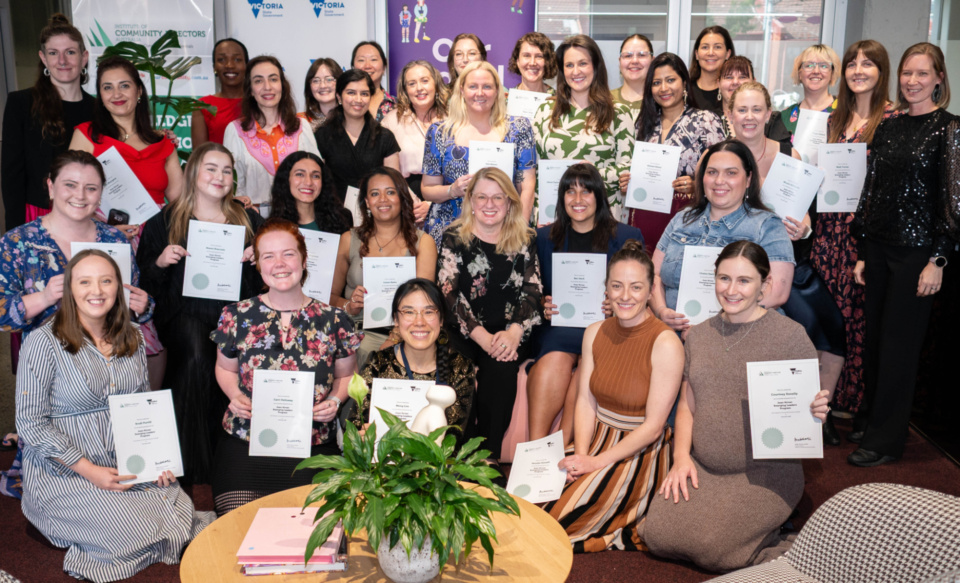
What not-for-profit leaders need to know in 2026
Posted on 12 Feb 2026
Our special NFP trends report distils the views of more than two dozen experts.
Posted on 19 Feb 2025
By Matthew Schulz

Leading philanthropists say major social and political issues will shape the giving landscape in 2025.
Philanthropy Australia’s Better Philanthropy Telescope, released this month, identified key concerns among the 120 surveyed philanthropists, social enterprises, charities, not-for-profits and private donors.

The most frequently cited issues were:
The study also nominated themes expected to shape philanthropy this year:

“The case for fixing the DGR system is clear and we shouldn’t be waiting for a sixth or seventh report to recommend it, yet again – there should be action now.”
Philanthropy Australia chief executive Maree Sidey told Community Directors Intelligence that 2025 would be a significant year for philanthropy, building on the momentum generated by last year’s release of the Productivity Commission’s inquiry into doubling philanthropy, the Not-for-profit Sector Blueprint, and a national conference that attracted 1,000 delegates.
“In 2025, we can expect another big year, with the findings of our recently released Better Philanthropy Telescope taking the pulse of the sector and helping to identify the trends, issues and opportunities that will shape philanthropy and the work of the wider not-for-profit sector,” Sidey said.
The report described a sector “that more than ever is considering how external developments, from elections through the ongoing cost-of-living crisis and the rise of disinformation, will shape the context in which philanthropy operates”.
With the federal election approaching, Philanthropy Australia “will be seeking tangible commitments from both the government and the Opposition to support efforts to grow philanthropy and its impact, and the work of the not-for-profit sector, for the benefit of the Australian community”.
At the top of that list of commitments sought would be deductible giving recipient (DGR) reforms. Five major reports, including two in 2024, have recommended changes to the system.
“The current system is unnecessarily complex and puts the Australian philanthropic sector at a distinct disadvantage compared to other countries in terms of providing effective support to charities and the work they do in the community,” Sidey said.
“The case for fixing the DGR system is clear and we shouldn’t be waiting for a sixth or seventh report to recommend it, yet again – there should be action now.”
Sidey said Philanthropy Australia had welcomed the “positive focus” on sector issues by Charities Minister Andrew Leigh and “extensive engagement” by the Shadow Charities Minister, Senator Dean Smith.
She noted that the adoption of deductible giving recipient (DGR) status for community foundations by the Albanese government was a step in the right direction.
“This significant reform will make it easier for community foundations to receive funds, including from private ancillary funds, and to facilitate granting to organisations and groups without DGR status,” she said.
“It’s really important to finally get this category up and running early in the year.”
Philanthropy Australia would also ramp up its campaigns on “paying what it takes” and “reframe overhead”, which advocated for full funding of grant recipients, Sidey said.
In 2025 funders were also expected to place more stock in long-term relationships, collaboration with community and government, and understanding impact.
Examples of these approaches included the Investment Dialogue for Australia’s Children and the Queensland Government’s plans for a new Office of Social Impact, supporting social enterprises.
“The type of strategic collaboration we’re increasingly seeing also has a strong focus on lifting practice as well. This is vital given it’s not just the amount of giving that matters, but also the effectiveness of that giving and how it meets the needs of charities and the community,” Sidey said.

Posted on 12 Feb 2026
Our special NFP trends report distils the views of more than two dozen experts.

Posted on 10 Feb 2026
As my family dropped our teenage son off at the airport in the first week of January to embark on a…

Posted on 11 Dec 2025
Community Directors trainer Jon Staley knows from first-hand experience the cost of ignoring…

Posted on 10 Dec 2025
As a qualified yoga instructor who learned the practice in her hometown of Mumbai, Ruhee Meghani…

Posted on 10 Dec 2025
Anyone working in an organisation knows it: meetings follow one after another at a frantic pace. On…

Posted on 10 Dec 2025
Stressed, overwhelmed, exhausted… if you’re on a not-for-profit board and these words sound…

Posted on 10 Dec 2025
The Institute of Community Directors Australia trains over 22,000 people each year, which gives us…

Posted on 03 Dec 2025
Many not-for-profit (NFP) board members in Australia are burnt out, overwhelmed and considering…

Posted on 26 Nov 2025
A roll call of Victoria’s brightest future leaders has graduated from a testing and inspiring…

Posted on 12 Nov 2025
At the Institute of Community Directors Australia, we believe that stronger communities make a…

Posted on 12 Nov 2025
Like many Community Directors members, Hazel Westbury is a community leader who isn’t easily…

Posted on 11 Nov 2025
I’ve seen what happens when fear of conflict wins out over taking a principled stand.